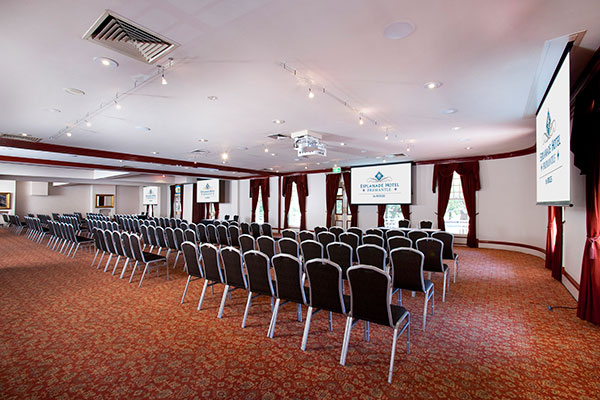It’s a New Era… the Challenge of Redeveloping your Body Corporate
Most of the holiday accommodation in Australia is strata titled.
It is worth understanding the big changes going on for the body that represents body corporate managers, suppliers and increasingly the industry at large to government and media.
The recent name change from Community Title Institute of Queensland to Strata Community Australia (Queensland) is part of national move to a national brand and unified voice. All states of Australia are now branded Strata Community Australia, this is a massive change from a group of individual state bodies with differing agendas and messages to a national brand that will become increasingly remembered and recognisable for its consistent name and messages.
Further this is a move away from being solely a professional body for body corporate managers to an industry body. While it is often convenient for an industry body to claim that it represents a broad swath of an industry rather than just a professional group within it there is real change afoot at Strata Community Australia (Queensland). One representation of this is a constitution that allows non body corporate managers to be on its board and even the president. Nice to have a constitution that allows this, totally another to actually elect directors or even a president that is not a member of the founding professional group.
Well I am the new president of Strata Community Australia (Queensland) and I am not a body corporate manager. My company is a supplier to the industry and I am a unit owner as well. Yes this professional body is now an industry body in a real sense not for politically convenient reasons.
I can hear the cries now from the other bodies that represent the various parts of the strata industry. No this is not about a takeover of the industry or marginalising other groups this is about working to get the real issues that matter resolved and affect our industry top of mind to those who control the legislative environment in which the industry operates.
The frustration for many years has been that when a body representing a part of the strata industry has lobbied government it has been with little success. It seems that the underlying view by those in government has been that the lobbying body is only looking after the interests of one part of the industry and therefore their message is treated as self serving, viewed with suspicion and treated accordingly. As well as this, the views of different representing groups have been at odds with each other at times and have even been critical of each other in a combative way. None of this does strata any service and over time earns the scorn of those we all wish to influence.
The reality is that there are a number of burning issues that everyone in strata and government need to address and the industry working together to create a unified message will give us the best chance to work with government to resolve them.
Here is an example of one of them: The plan set down for the development of South East Queensland has a clear outcome. It is to stop urban sprawl except in a few selected areas and, instead, encourage infill development of underutilised land within the current urban footprint. The urban planners see this as efficient as there is existing infrastructure and over time creates integrated communities where employment services and accommodation are in one location. It means less travel, arguably a better lifestyle and a lower environmental impact. It is all sounds great except that when you want to redevelop a site with an existing body corporate.
There are currently many underutilised sites that have older buildings built when planning laws allowed a much lower density. They sit amongst their higher density neighbours that have been built under new zoning laws. Just look along the Gold Coast beachfront and it is easy to see. Dissolving the bodies corporate on the older lower density sites to allow higher density redevelopment in line with the urban plan is extraordinarily difficult under current legislation. It only takes one owner to say no. That is right – 99 owners maybe wanting to sell to allow a new development and only one owner saying no holds the rest of the owners to ransom. It is undemocratic and unfair.
I know that there will be cases where the owner not wanting to move will be one whose family live nearby and has strong emotional ties for staying put but either we fire our urban planners and get a new vision or we change the legislation so that a democratic process can take place where a large majority of owners can chose what it is they want for their complex and the few remaining who are against it will have to bend to the will of the majority.
Like many issues we face it has a controversial edge, which is one of the reasons it has not being resolved but all it needs is leadership, logic and sensible action to get it resolved. No politician likes the idea of a current affairs program showing an older Australian being evicted from their home. The reality behind this is will be that that owner is being paid out for their unit and often at a premium to its market value. In fact an offer for the owner to buy back into the new development at a discount will often be there as well.
This issue was well debated at the 2007 Griffith University strata conference with all stakeholders represented and everyone agreed that finding a solution was of paramount importance. All modern buildings have a useful life and many older strata buildings are reaching it. Currently most developers will not make offers to existing unit owners as the process is so lengthy with no assured outcome. For those buildings that do get approached the building often remains in limbo with the majority of owners wanting to sell little money is spent on maintenance as they believe that the building will be soon knocked down. Meanwhile it is stalemate.
It is absurd to have a situation where one piece of legislation promotes higher density infill development while another that defines a decision making process that makes the redevelopment of underutilised strata sites near the end of their useful lives near on impossible.
As president of Strata Community Australia (Queensland) I look forward to working with all of the industry to resolve the big issues like this one.
James Freestun
Strata Community Australia
James Freestun is the president of Strata Community Australia (Queensland), managing director of Solutions in Engineering and Solutions in Fire – providers of compliance advice to building assets specialising in strata buildings.

AccomNews is not affiliated with any government agency, body or political party. We are an independently owned, family-operated magazine.





